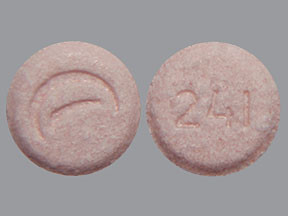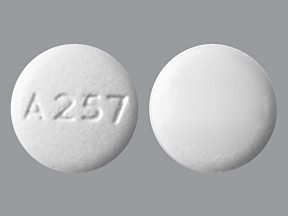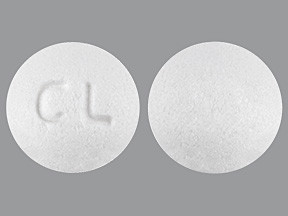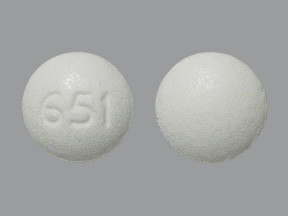CLONIDINE 12-HOUR EXTENDED-RELEASE - ORAL
PHONETIC PRONUNCIATION: (KLOE-ni-deen)
COMMON BRAND NAME(S): Kapvay
GENERIC NAME(S): clonidine HCl
Uses
USES: This medication is used alone or with other medications to treat attention deficit hyperactivity disorder (ADHD) as part of a total treatment plan, including psychological, social, and other treatments.
How to use CLONIDINE 12-HOUR EXTENDED-RELEASE - ORAL
HOW TO USE: Read the Patient Information Leaflet if available from your pharmacist before you start taking clonidine and each time you get a refill. If you have any questions, ask your doctor or pharmacist. Take this medication by mouth with or without food as directed by your doctor, usually twice daily (in the morning and at bedtime). If the doses are not equal, take the larger dose at bedtime. To reduce your risk of side effects, your doctor may direct you to start this medication at a low dose and gradually increase your dose. Follow your doctor's instructions carefully. Do not crush or chew extended-release tablets. Doing so can release all of the drug at once, increasing the risk of side effects. Also, do not split the tablets unless they have a score line and your doctor or pharmacist tells you to do so. Swallow the whole or split tablet without crushing or chewing. The dosage is based on your medical condition and response to treatment. Use this medication regularly to get the most benefit from it. To help you remember, take it at the same times each day. It is important to continue taking this medication even if you feel well. Do not stop taking this medication without consulting your doctor. You may experience symptoms such as headache, fast heartbeat, nausea, anxiety, and flushing. A rapid rise in blood pressure may also occur when the drug is suddenly stopped. The risk is greater if you have used this drug for a long time or in high doses, or if you are also taking a beta blocker (such as atenolol). There have also been rare reports of severe, possibly fatal reactions (such as stroke) from stopping this drug too quickly. Therefore, it is important that you do not run out of clonidine or miss any doses. Tell your doctor or pharmacist right away if you are unable to take the medication (for example, due to vomiting). To prevent any reactions while you are stopping treatment with this drug, your doctor may reduce your dose gradually. Consult your doctor or pharmacist for more details. Report any new or worsening symptoms right away. Other forms of this medication (such as immediate-release tablets) may deliver different amounts of this medication. Do not switch between the different forms of this medication without your doctor's permission and directions. Also, do not take other clonidine-containing products while taking this medication. Tell your doctor if your condition does not improve or if it worsens.
Side Effects
Precautions
Interactions
Overdose
Images

- color
- pink
- shape
- round
- imprint
- logo, 241
Reviews
Faq for CLONIDINE 12-HOUR EXTENDED-RELEASE - ORAL
Clonidine 12-hour extended-release is used to treat high blood pressure (hypertension).
Clonidine belongs to a class of drugs called alpha-agonists. It works by relaxing blood vessels and reducing the heart rate, thereby lowering blood pressure.
The common side effects of clonidine 12-hour extended-release include drowsiness, dry mouth, constipation, dizziness, and headache.
Yes, clonidine is also sometimes used to manage withdrawal symptoms from opioids or as part of a comprehensive treatment plan for attention deficit hyperactivity disorder (ADHD).
Clonidine 12-hour extended-release tablets should be taken as directed by your doctor. Typically, it is taken once daily with or without food, preferably at the same time each day.
If you miss a dose, take it as soon as you remember unless it is within 4 hours of your next scheduled dose. In that case, skip the missed dose and resume your regular dosing schedule. Do not take double doses to make up for a missed dose.
No, clonidine should not be stopped abruptly as it may cause a rapid increase in blood pressure. Consult your doctor before stopping the medication, as they will provide guidance on how to gradually reduce the dosage.
Yes, clonidine can interact with certain medications, including antidepressants, blood pressure medications, and medications affecting heart rhythm. It is important to inform your doctor about all the medications, supplements, or herbal products you are taking before starting clonidine.
It is not recommended to use clonidine during pregnancy unless the potential benefits outweigh the risks. Clonidine is also not recommended while breastfeeding, as it can pass into breast milk.
Disclaimer
IMPORTANT: HOW TO USE THIS INFORMATION: This is a summary and does NOT have all possible information about this product. This information does not assure that this product is safe, effective, or appropriate for you. This information is not individual medical advice and does not substitute for the advice of your health care professional. Always ask your health care professional for complete information about this product and your specific health needs.




No Reviews Yet